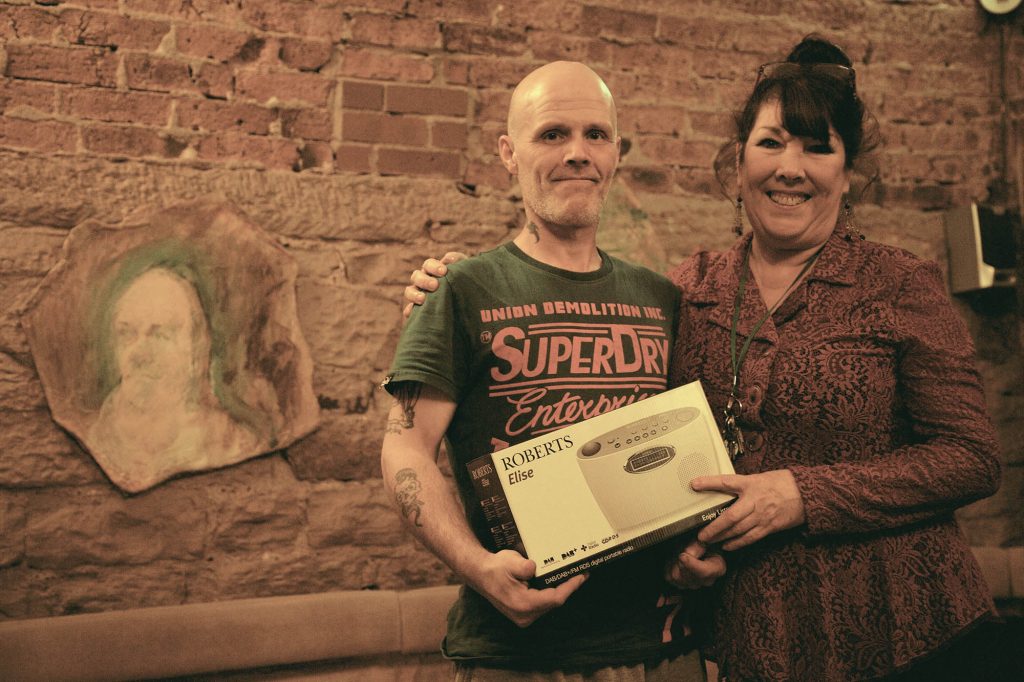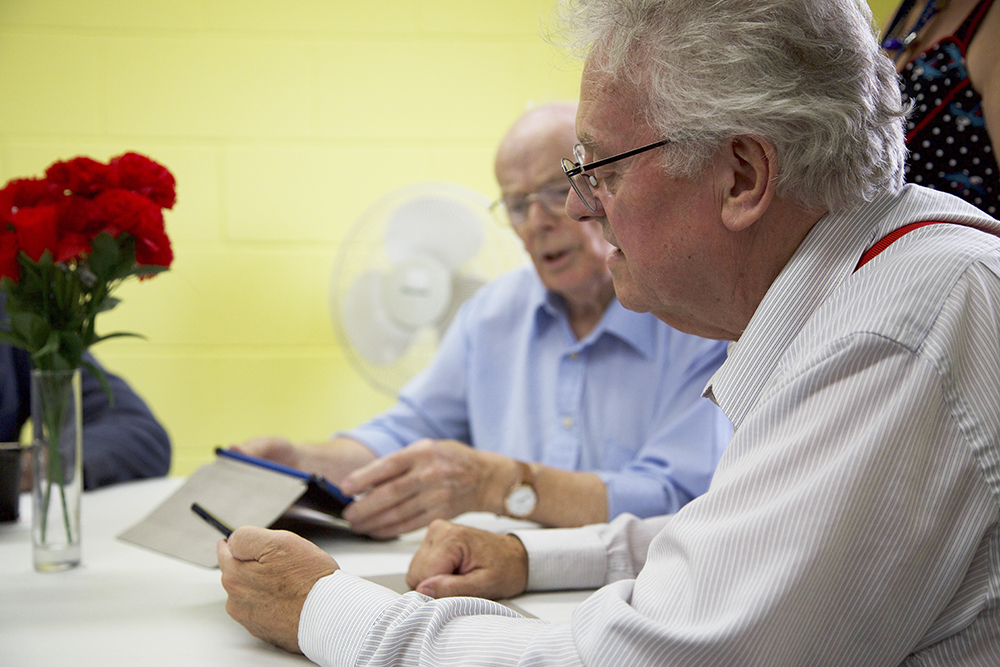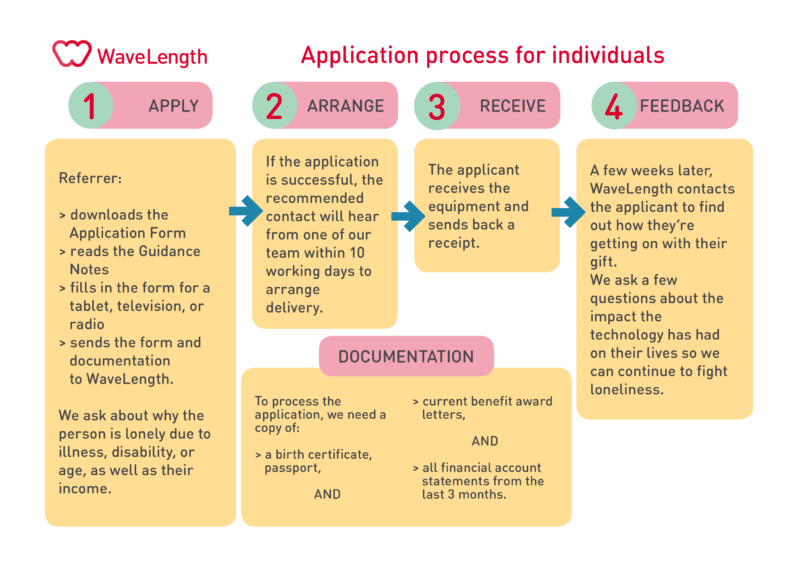Application Form and Guidance Notes
Read the guidance notes to check you are eligible to apply and can provide all the necessary information for the application.
Please print out the application form and fill it in by hand.
Completed forms should be posted to:
WaveLength Charity, 47-51 Norfolk Street, Cambridge, CB1 2LD
If you require assistance to complete the form, call our office
on 01223 776 770 and we’ll be happy to assist.
Who can refer a beneficiary?
To qualify for WaveLength’s help, beneficiaries must be referred to us by a third party, known as a referrer.

Unfortunately, people who are related to or employed by the individual cannot refer them. However, people who can act as referrers include:
– a friend or neighbour
– a social worker
– a care worker or medical worker
– a housing officer
– a charity worker or volunteer
– a member of a religious or community organisation
If you’re not sure whether you qualify, as a beneficiary or a referrer, call us on 01223 776 770 or email [email protected].
If you would like to refer somebody to WaveLength, please read the guidance notes and fill in our application form.

Once you’ve filled in the application form, please post it to us at: WaveLength Charity, 47-51 Norfolk Street, Cambridge, CB1 2LD
We aim to reply to all applications within ten working days. Please make sure that all necessary supporting documents are included, and that the forms are signed. We do ask that applications include proof of ID, such as a copy of a birth certificate or passport. However, if these documents aren’t available, we recommend contacting the birth certificate replacement service on 0300 123 1837.
A note on TV licenses
It is important to note that we don’t usually pay TV licence fees, so the recipient of a TV will need to purchase their own. They can do this by calling 0300 790 6138, or visiting the TV Licensing website. If a beneficiary can’t afford their own licence, it may be best to request a radio instead. In exceptional cases, however, we may pay for licences for people with very limited incomes and severe inability to leave their homes.


